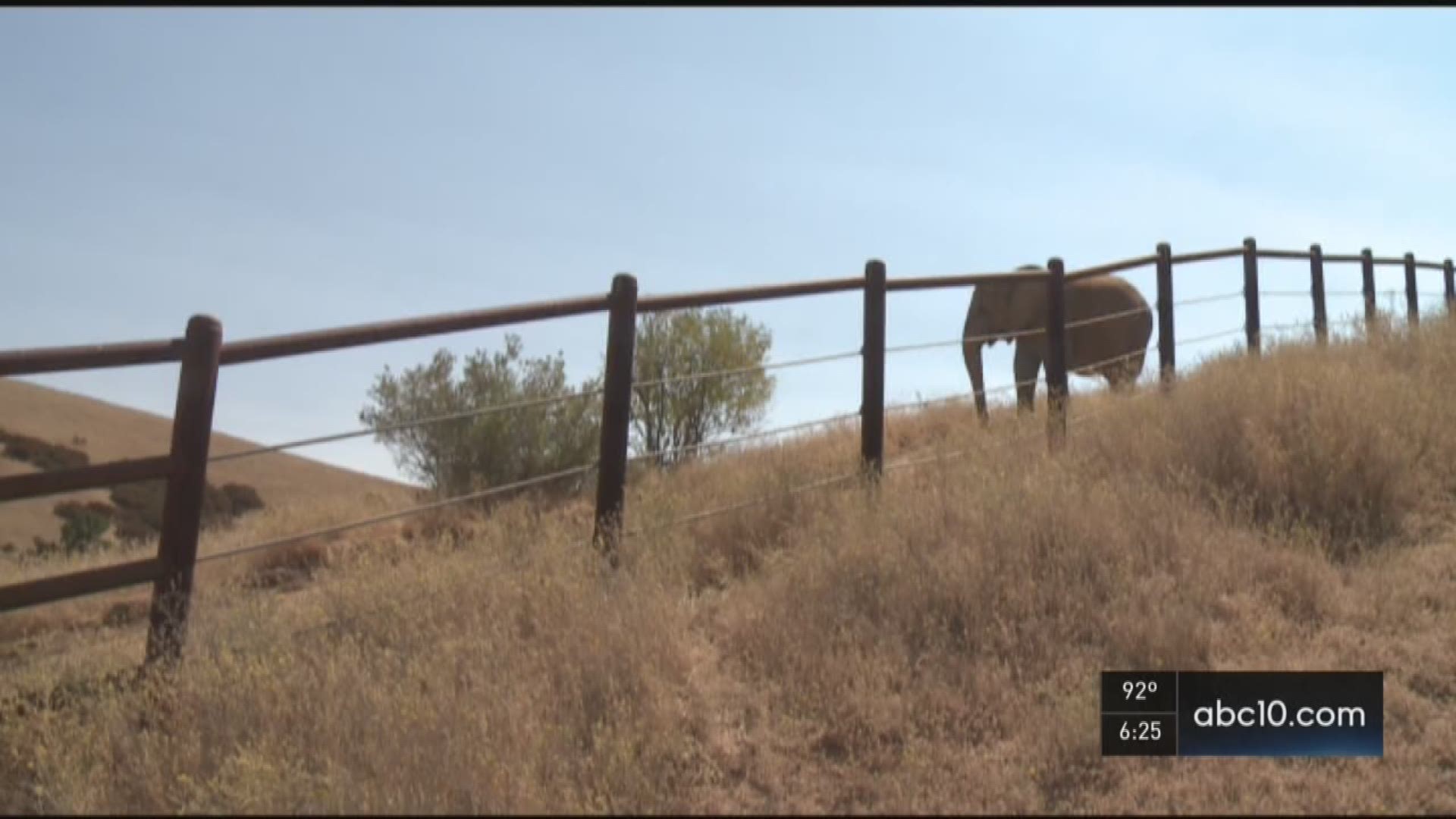Mara was born in South Africa, spent time in New York and Florida, and then almost moved to Mexico before settling in central California.
The travel was not her choice, though. Mara is an African elephant. Her family was shot to death in Kruger National Park; Mara, only a couple of years old at the time, was sold for $750 to become a performing animal.
Mara spent some of her early years penned up in a San Jose zoo. Later on, when she was about to be sold to a Mexican circus, the Performing Animal Welfare Society, or PAWS, intervened.
“Right now, she would still be with her mother, maybe with her grandmother. She would still be traveling miles every day in Africa in Kruger National Park,” PAWS president Ed Stewart said. “But by the luck of the draw, she was stuck in captivity.”
PAWS does its best to give its rescued elephants a taste of what their lives would have been otherwise. The rescue organization has 2,500 acres of land in the Calaveras County town of San Andreas, and the elephants roam in an 80-acre enclosure.
“You have to do your best to give them opportunities to act like an elephant every day. That's really all you can do, is try to give them friends that they like, but it's still not the social group they should have,” Stewart said. Elephant herds are typically made of related adult female elephants, along with their offspring.
Stewart says the average lifespan of an elephant in captivity is 37, while elephants in the wild can live to be upwards of 60. While Mara is roughly 37 years old, Stewart is optimistic she’ll live for at least another 15 years.
“Mara is like a bulldozer. She’s super strong, and she’s up and down the hills [with] no problem,” Stewart said.
Of the five African elephants at PAWS’ sanctuary, Stewart says he is most closely bonded to Mara. And though he believes she’s lived a better life in San Andreas than she would have in a zoo or with a circus troupe, he says no elephants should be held in captivity at all.
“What I wish would have happened is I would have never known her -- that she was still in Africa. That would be my main wish if we could go back and change things,” Stewart said. “If there was a way to take Mara back and put her into the wild, we'd do it tomorrow, but there'd be no way for her to survive. There's no way to return her.”

